Everything New in TFT Set 6.5: Neon Nights
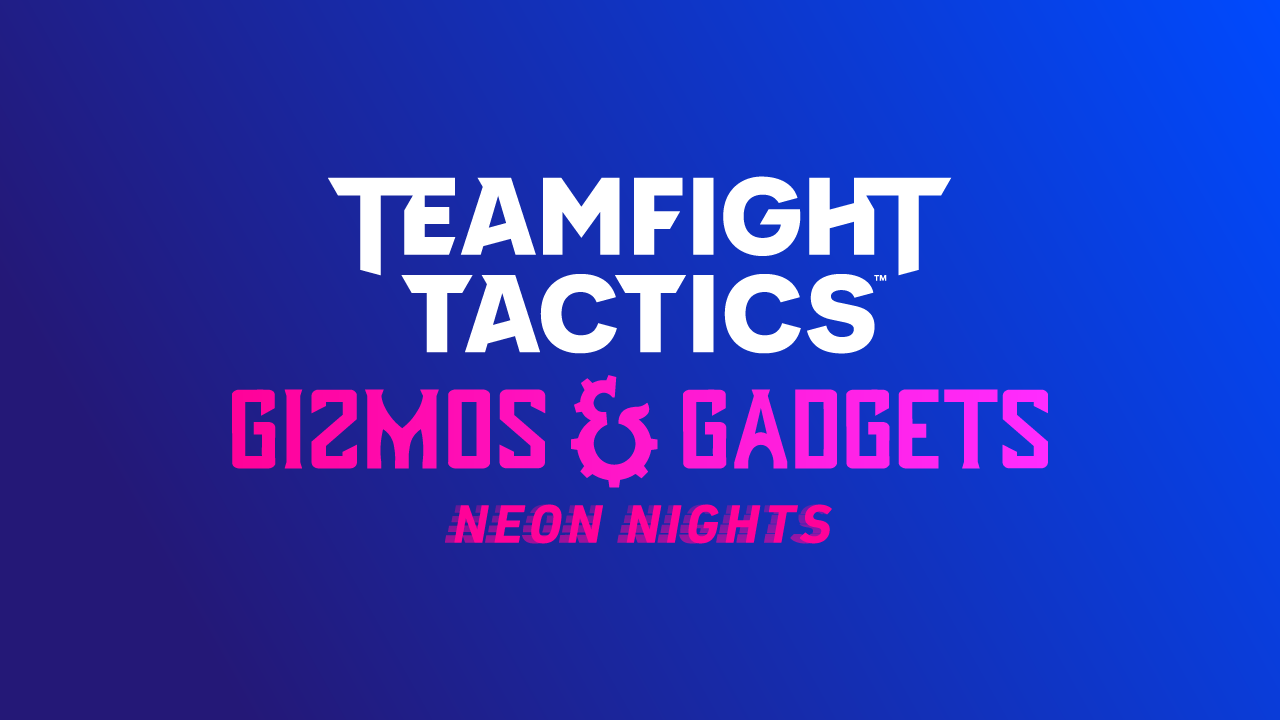
The mid set update, Neon Nights, is right around the corner, and this will be the largest mid set update we’ve had from TFT thus far. This will be a quick rundown of all the new champions and traits coming, and a quick overview of what’s leaving set 6.
Keep in mind that the information for new champions are constantly being updated on the PBE. Our website will continually be updated, so make sure to check out the Champions Page to stay updated on any changes.
To explore the new augments, head to our Hextech Augments page. To see ALL the new changes, head to our all-in-one TFT page for Set 6.5.
When does Set 6.5 Neon Nights go live?
Set 6.5 Neon Nights officially goes live on February 16th with the launch of Patch 12.4.
Everything Leaving TFT Set 6
Here’s a list of the champions and traits we must say goodbye to:
Traits
- Protector
- Academy
- Imperial
Champions
- Twisted Fate
- Akali
- Katarina
- Fiora
- Yone
- Samira
- Sion
- Janna
- Taric
- Heimerdinger
- Garen
- Kassadin
- Lissandra
- Kog’Maw
- Tristana
- Graves
- Lux
- Yuumi
- Urgot
- Dr. Mundo
- Trundle
Champion Changes
These four Champions are all staying in Set 6.5, but they have been changed to either have new traits, or even have a new cost and ability. We’ll go over these champions in our First Impressions.
- Vi
- Leona
- Talon
- Swain
New TFT Set 6.5 Traits
With a mid set update, there must be new traits. There are 3 new larger traits, and 2 new smaller traits.
Debonair

Bonus: Debonair champions gain bonus Health and Ability Power that increases at 3/5/7. If there is a Debonair VIP in play, they activate their unique bonus. (Sell the old VIP for a chance to see a new one in your Shop.)
Champions: Brand, Talon, Syndra, Leona, Draven, Zeri
First Impressions: The new VIP bonus brings back memories of Set 4 when Champions could be Chosen. This opens up a lot of carry potential as each of the Debonairs with a VIP Bonus can become very powerful. The trait is a simple stat buff, but the VIP brings some flair to it which is enjoyable.
Hextech

Bonus: At the start of combat and every few seconds, the Hexcore sends out a pulse that grants a 4 second shield for Hextech champions that, while active, adds bonus magic damage on attacks. This shield does not stack.
Champions: Jarvan IV, Nocturne, Sejuani, Swain, Lucian, Alistar, Sivir
First Impressions: This trait is quite interesting as it’s not the usual stat boost. A shield that refreshes itself can be quite powerful, especially against comps that deal consistent damage rather than burst damage. The bonus magic damage also brings a lot of damage to the units that may just be tanks.
Striker

Bonus: Strikers gain bonus Attack Damage that increases at 3/5/6.
Champions: Jarvan IV, Rek’Sai, Gnar, Sivir, Irelia
First Impressions: This is as simple as you can get with a trait. This gives just pure attack damage, but this makes itemizing really easy as you want good scaling items like Infinity Edge or Giant Slayer, etc.
Rival

Bonus: This trait is active when you have exactly 1 unique Rival unit, as Rivals refuse to work together. Vi’s mana cost is reduced by 20. Jinx gains 40% Attack Speed for 3 seconds after scoring a takedown.
Champions: Vi, Jinx
First Impressions: The Sister trait is no more and now we have Rival. We’ve seen Jinx do very well in Bruiser comps with Urgot, but now, you will have to decide whether you want to use Vi or Jinx rather than both.
Mastermind

Bonus: At the start of combat, the Mastermind grants the 2 allies directly in front of him a portion of their maximum Mana.
Champions: Silco
First Impressions: Silco is TFT’s first unit that isn’t a champion in League of Legends. The Mastermind trait is very interesting as this allows you to cast your powerful abilities very quickly.
New Champions: Tips, First Impressions, and Positioning
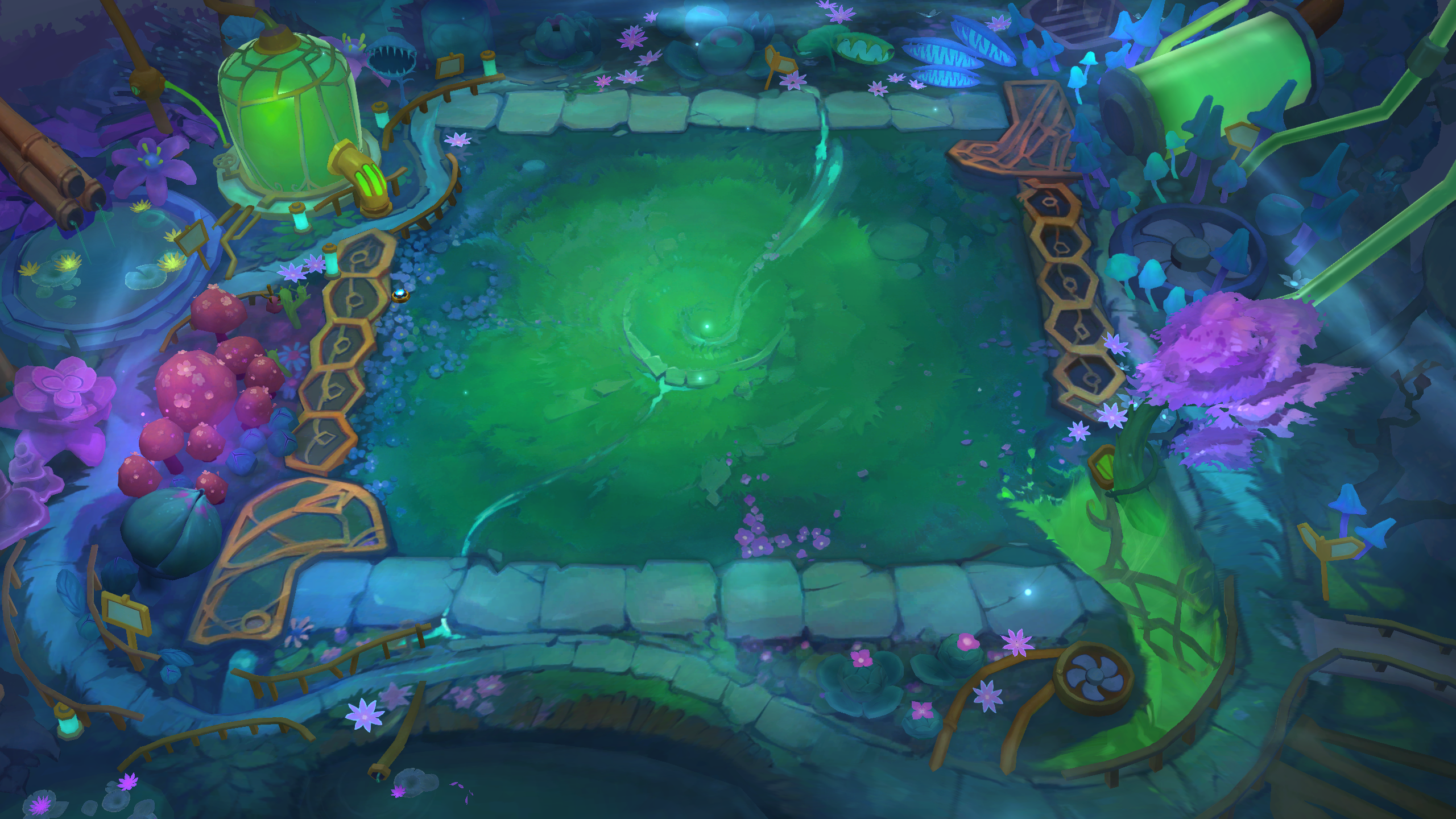
Positioning Key
We’ll be giving basic positioning suggestions for every champion to get the ball rolling for you, but remember that positioning is incredibly contextual in TFT and to always adapt to the situation at hand.
The terminology we’ll be using in this article will be frontline, midline, and backline.
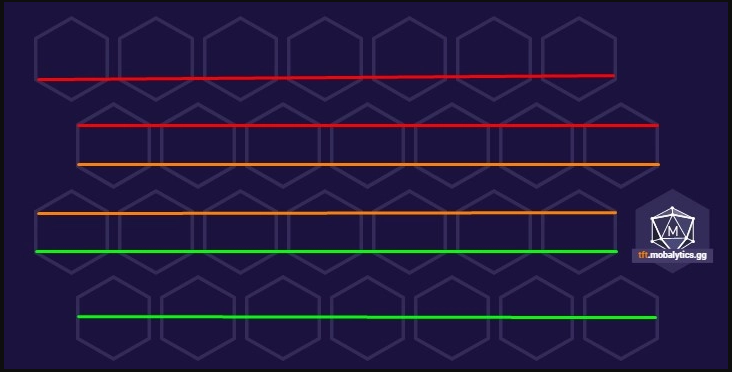
1-Cost Champions
Brand
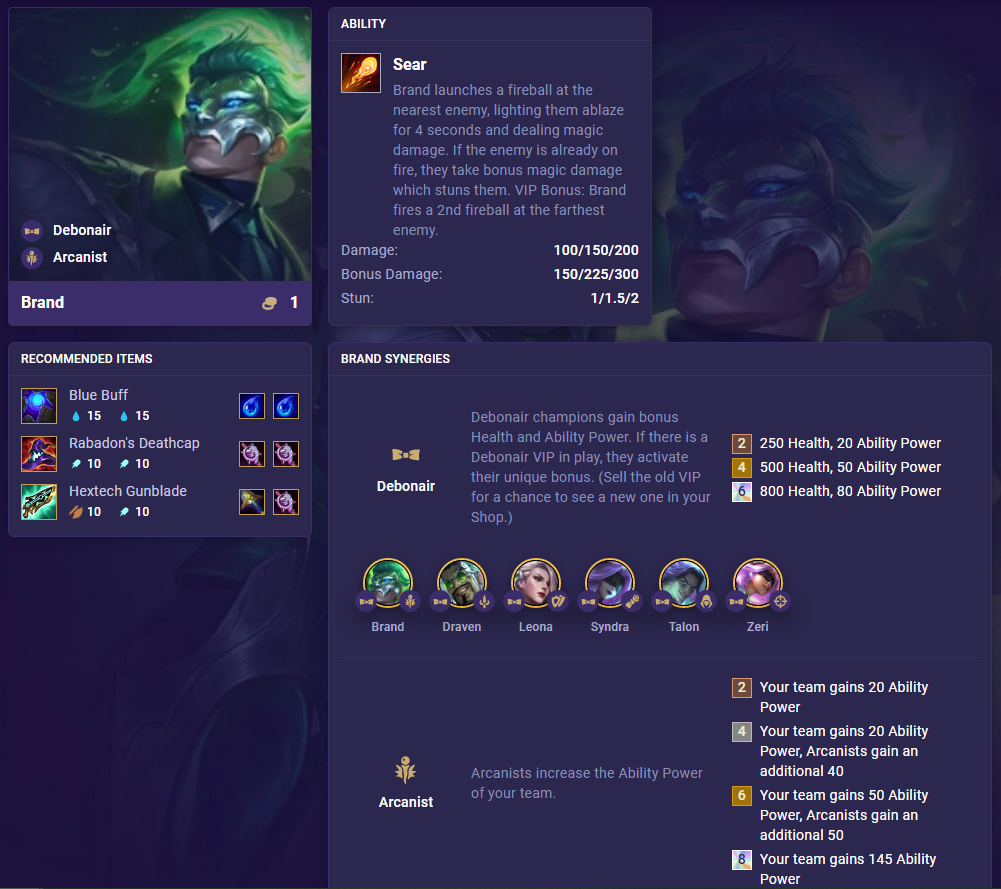
First Impressions:
Brand’s ability is nothing new as we’ve seen before in Set 5, but his VIP ability also gives him carry potential as a slow roll carry. The stun on his ability also brings some added utility to what was previously a bland unit.
Positioning: Backline
Tips:
Itemizing Brand will be interesting depending on how many Debonairs are used. With 6 Debonair, Brand will get 80 Ability Power, making it better to use items like Jeweled Gauntlet over Rabadon’s Deathcap, but Deathcap will be great if you can only fit 2 or 4 Debonairs in the comp.
[See Brand’s TFT Champion Page]
Jarvan IV
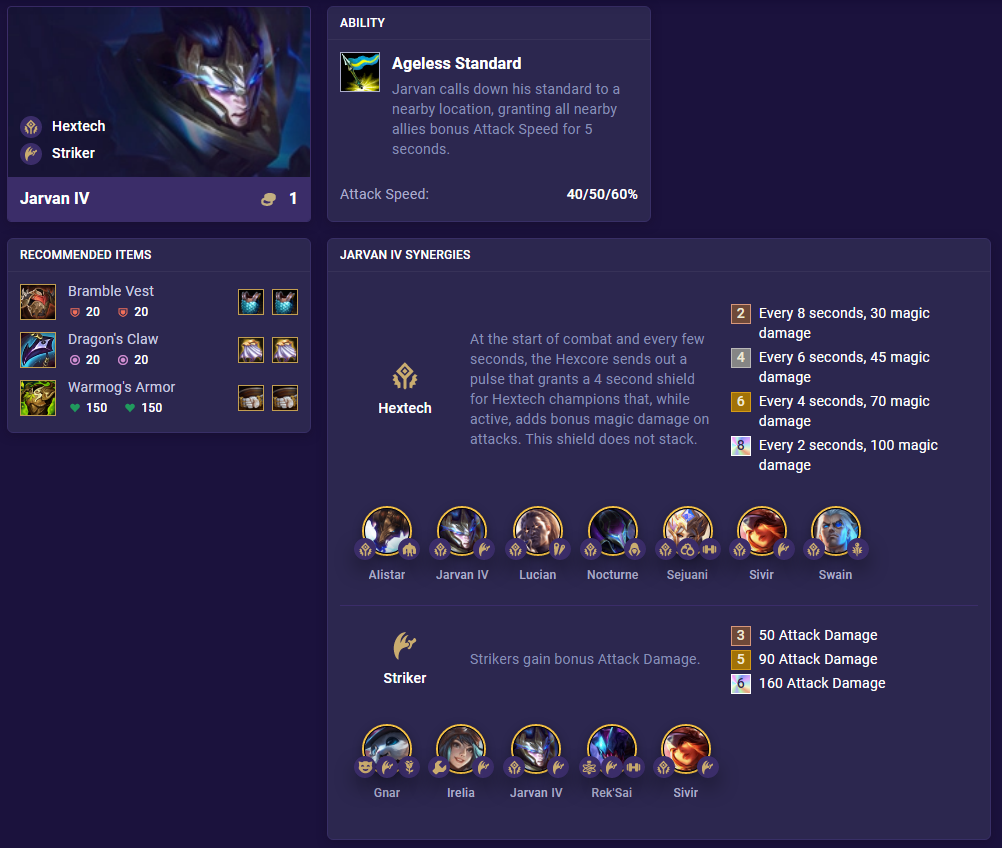
First Impressions:
Jarvan is back with his Set 3 ability. This ability provided a lot of attack speed and made him a very popular frontline in slow roll comps with 1-cost units. While it’s not a given, it’s likely that Jarvan will have potential in that same role come set 6.5.
Positioning: Frontline
Tips:
Depending on where Jarvan drops his ability, not all units on the team will gain bonus attack speed. Try to position your most important units close to Jarvan so that his ability reaches them.
[See Jarvan IV’s TFT Champion Page]
Nocturne
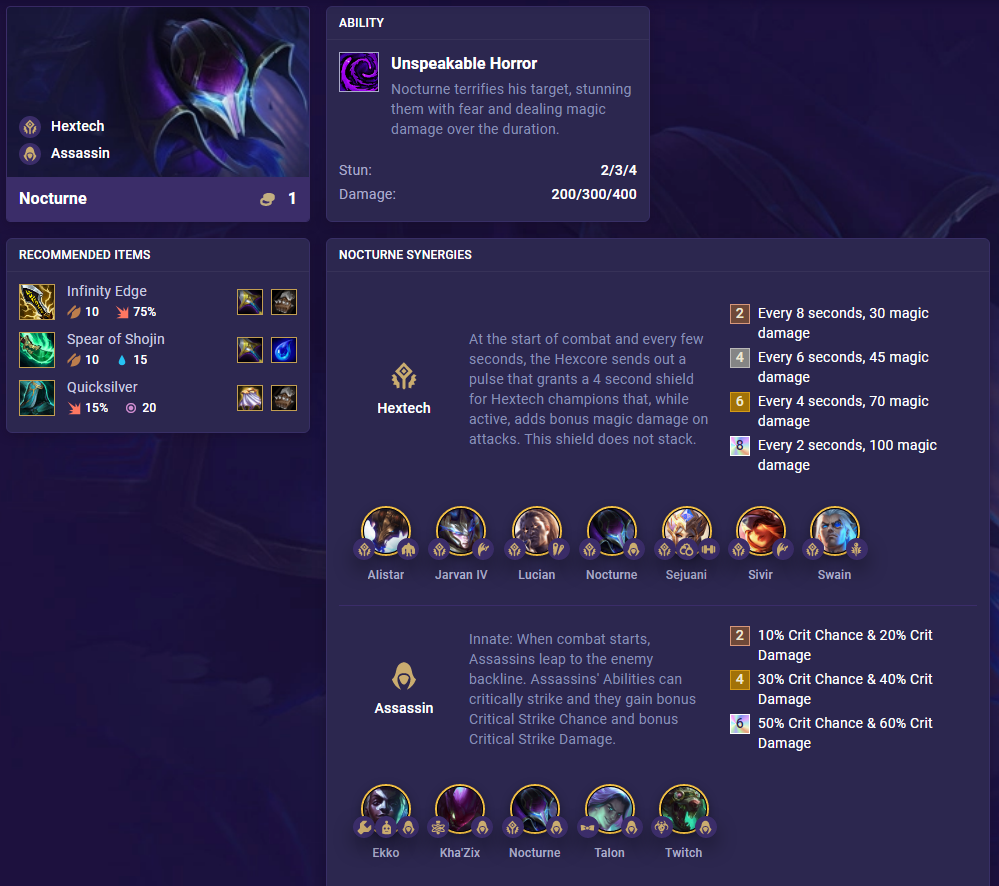
First Impressions: Nocturne doesn’t really stand out much as a unit. He has a useful ability that provides CC, but for the most part, I expect him to become a trait bot or just an early game unit.
Positioning: Backline
Tips:
You can make the most out of Nocturne’s ability by trying to get him to jump on an enemy carry, but in the late game, it will be hard to do that as enemy boards will have ample protection for their carry.
[See Nocturne’s TFT Champion Page]
2-Cost Champions
Ashe
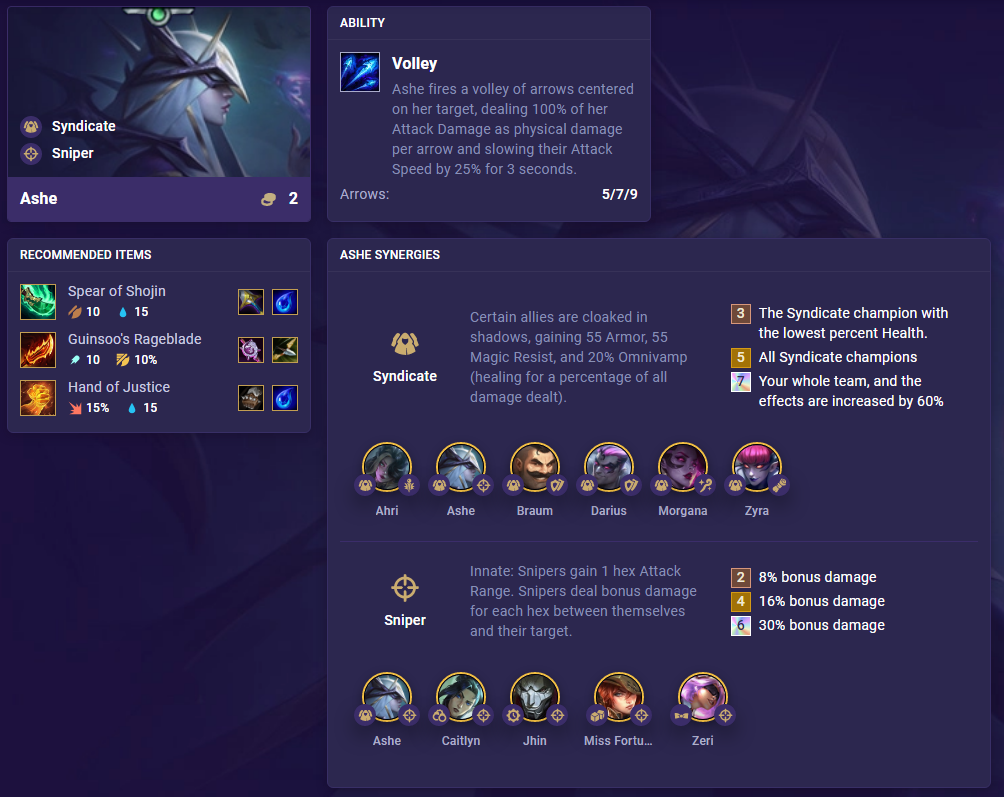
First Impressions: Ashe is another unit that doesn’t stand out as a carry, but she has a useful ability. Scaling off physical damage is interesting, but the slow on her ability can be quite useful if it lands on enemy carries.
Positioning: Backline
Tips:
Ashe will fire the volley toward her target, so you will want to position her in a way so that her arrows also hit enemy units in the backline. Switching her from corner to corner depending on the enemy will be useful.
[See Ashe’s TFT Champion Page]
Corki
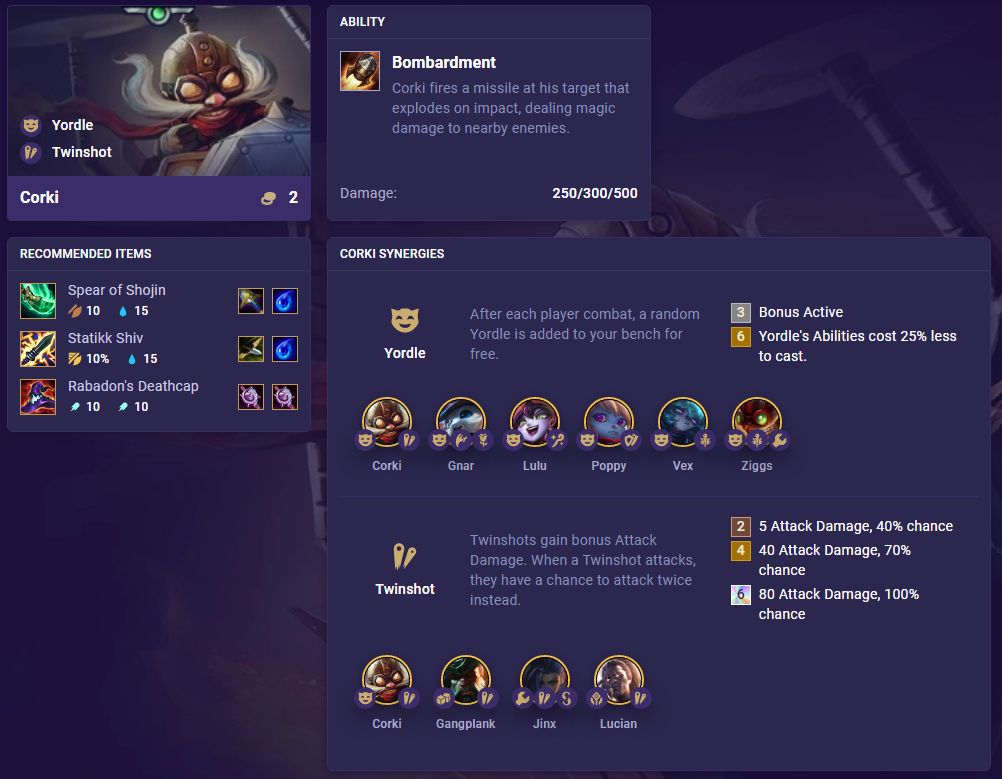
First Impressions:
Corki is a new Yordle added to the lineup that also deals magic damage instead of physical damage like Tristana did. This makes him synergize much better with the team as they do mostly magic damage.
Positioning: Backline
Tips:
We no longer have Heimerdinger as a carry for Yordle comps, so Corki will likely default into this new role. As such, Yordle comps will likely want a Twinshot in at level 7 in order to buff Corki up as much as possible.
[See Corki’s TFT Champion Page]
Rek’Sai
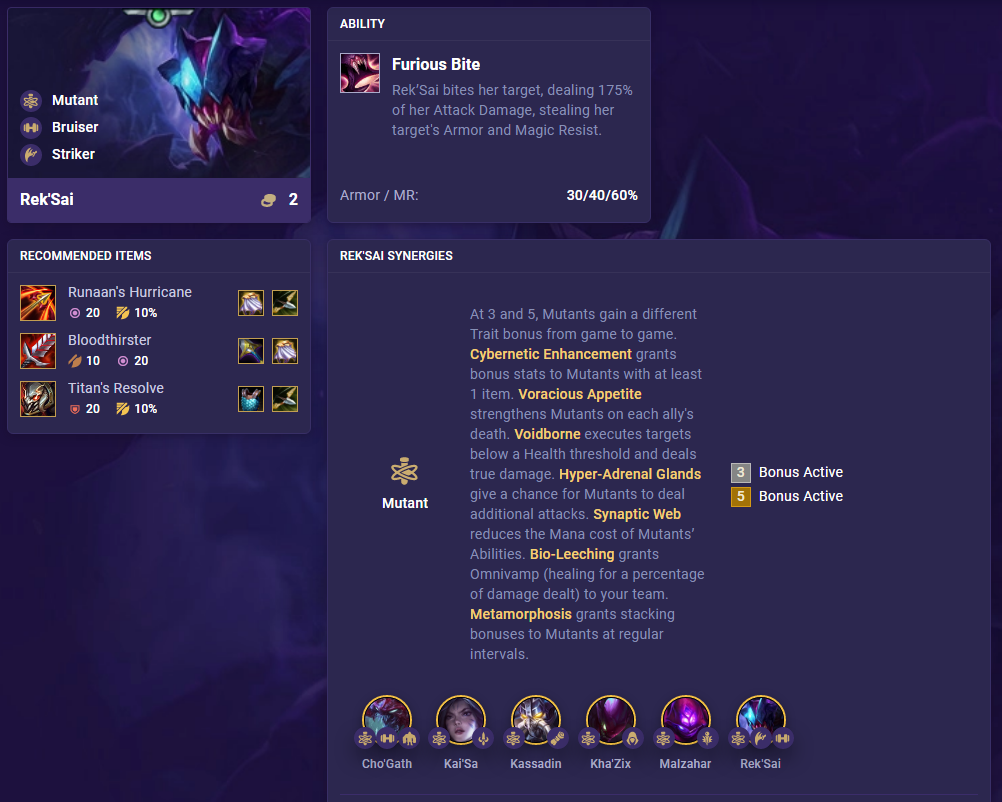
First Impressions:
Rek’Sai seems to be somewhat of a successor to Trundle. The ability is very similar, except Rek’Sai also steals defensive stat, which can definitely be problematic for enemies.
Positioning: Frontline
Tips: If you plan to build around Rek’Sai, having the Striker trait allows her to gain a lot of Attack Damage easily, so having items that synergize around that will be your best bet.
[See Rek’Sai’s TFT Champion Page]
Sejuani
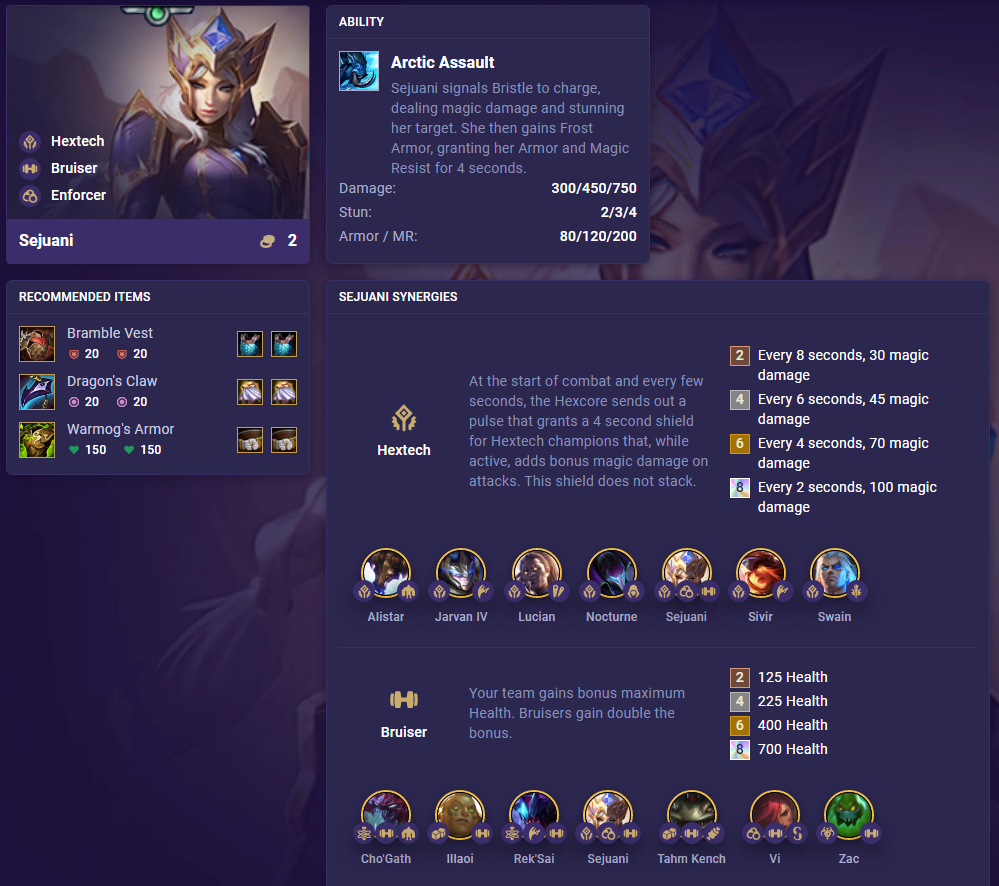
First Impressions:
Sejuani seems to be a nice solid generic frontline unit. Having three synergies makes her quite useful in the early and mid game, but Enforcer is more of a cherry on top rather than a full fledged trait.
Positioning: Frontline
Tips:
Sejuani will stun her target with her ability, so try to place her in front of an enemy that has a powerful ability that you want to delay.
[See Sejuani’s TFT Champion Page]
Swain
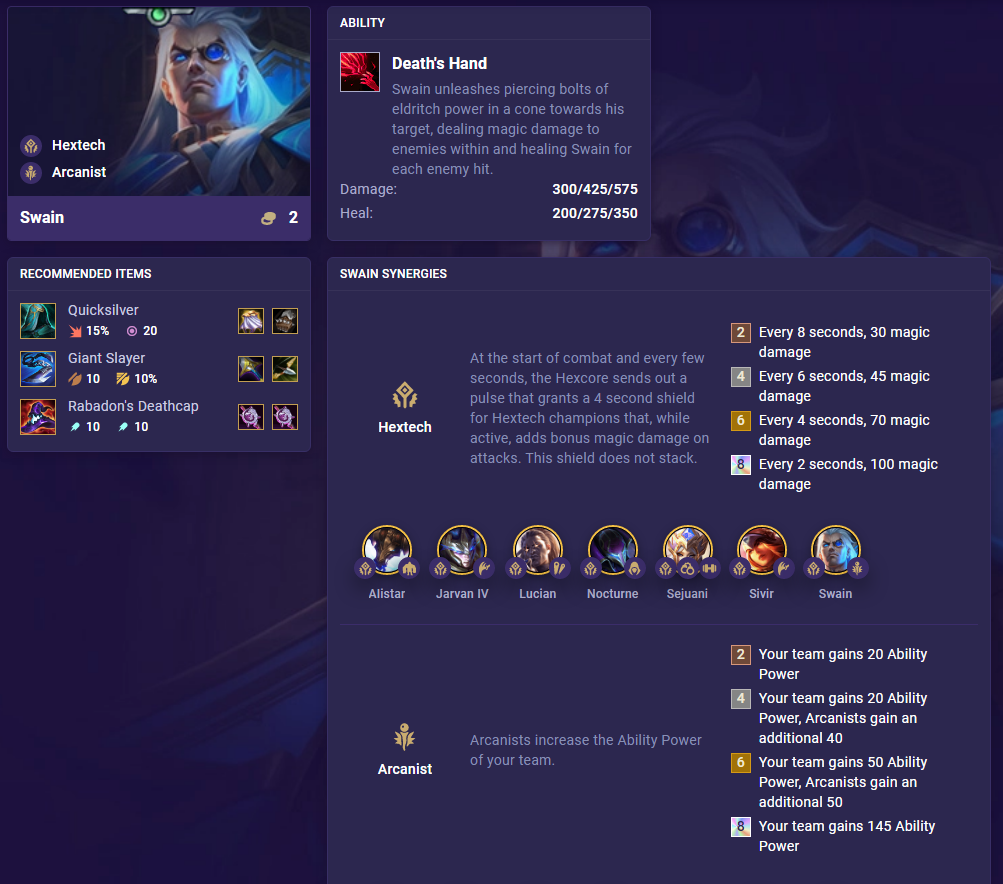
First Impressions:
Swain is back with the same ability as before, but with different traits. Now that he is a Hextech unit, it is unlikely that we will see him as the same carry as before with the Imperial trait.
Positioning: Frontline
Tips:
You can try to build Swain the same as before with carry items, but it’s likely that he will become another trait bot or simply a unit to place defensive or utility items on.
[See Swain’s TFT Champion Page]
Syndra
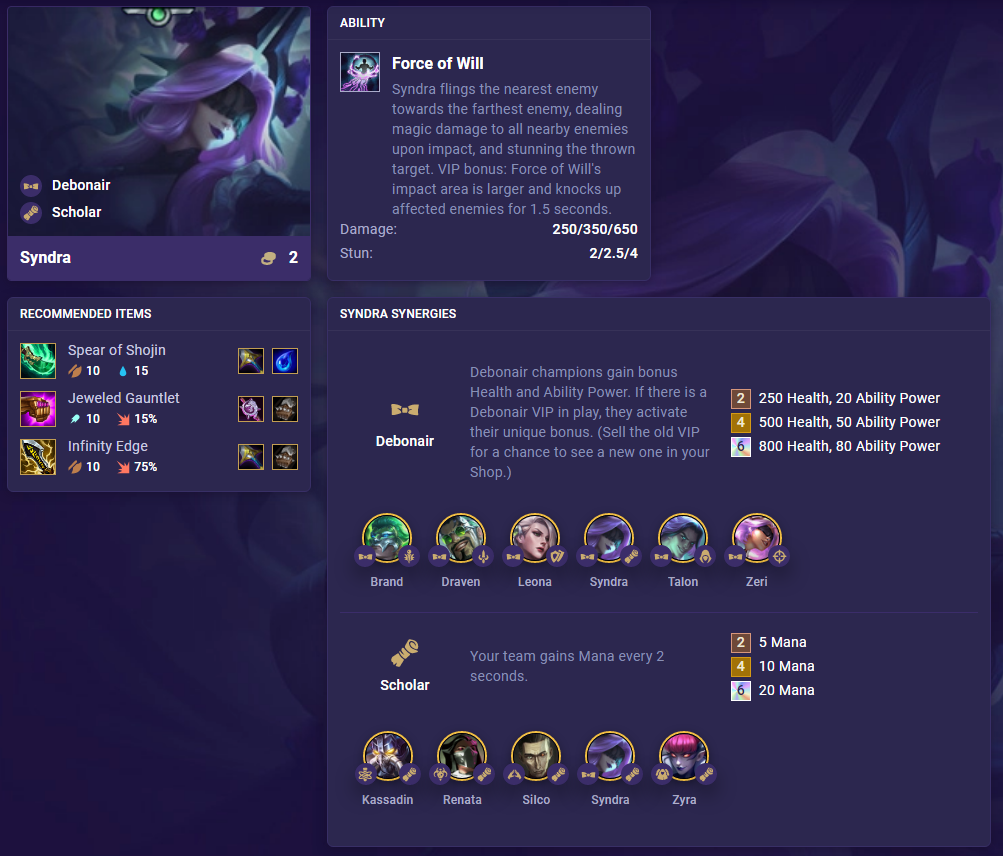
First Impressions:
Syndra is back with her annoying ability that picks up units and flings them to enemies. This is a great ability when facing Assassins, and she also has carry potential with her VIP bonus as well. Only time and testing will tell if she or Brand will be the preferred Debonair magic damage carry.
Positioning: Backline
Tips:
Just like with Brand, Syndra may have enough Ability Power from her Debonair trait, so build her items accordingly with what your team is like. You can also build things like Chalice of Power to buff up both Syndra and Brand as well.
[See Syndra’s TFT Champion Page]
Talon
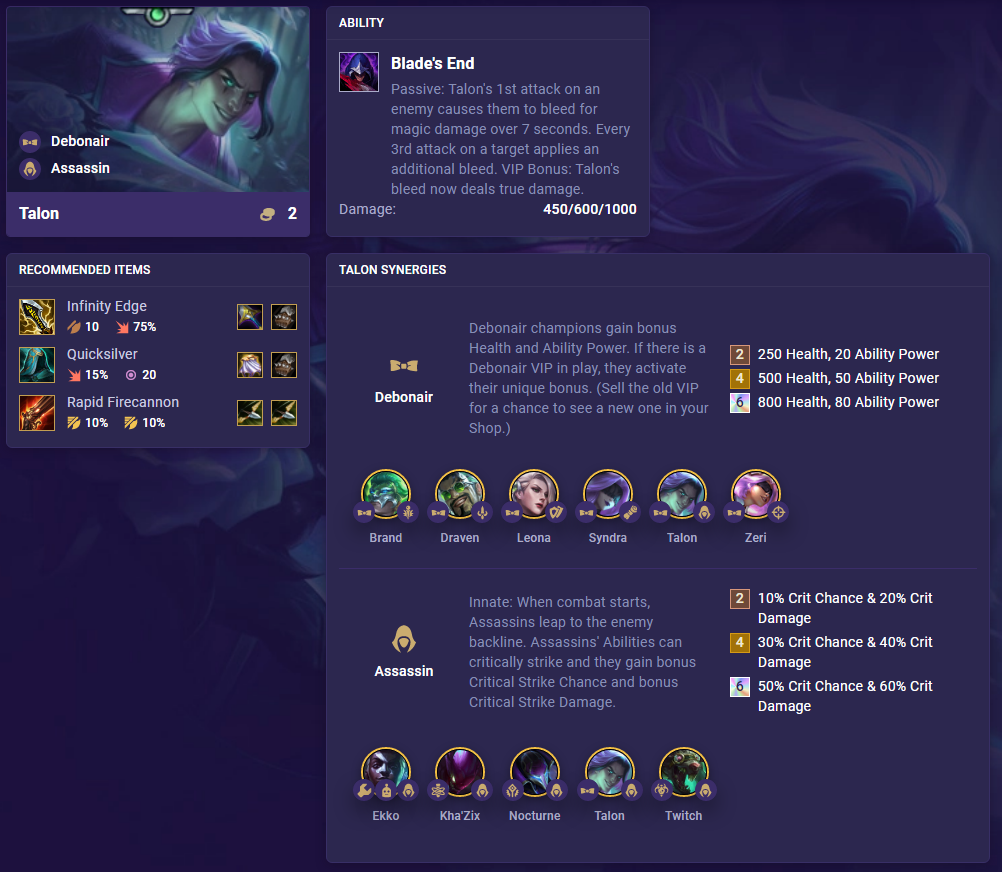
First Impressions:
Just like Swain, Talon is back, but he is now a Debonair instead of an Imperial unit. His damage will suffer because of this, but he may still have enough potential to be a carry as he now gets Ability Power with the Debonair trait.
Positioning: Backline
Tips:
Having a VIP Talon will make his damage deal true damage, but scaling his damage will likely be done with things like Infinity Edge, the Assassin trait, and Attack Speed.
[See Talon’s TFT Champion Page]
3-Cost Champions
Gnar
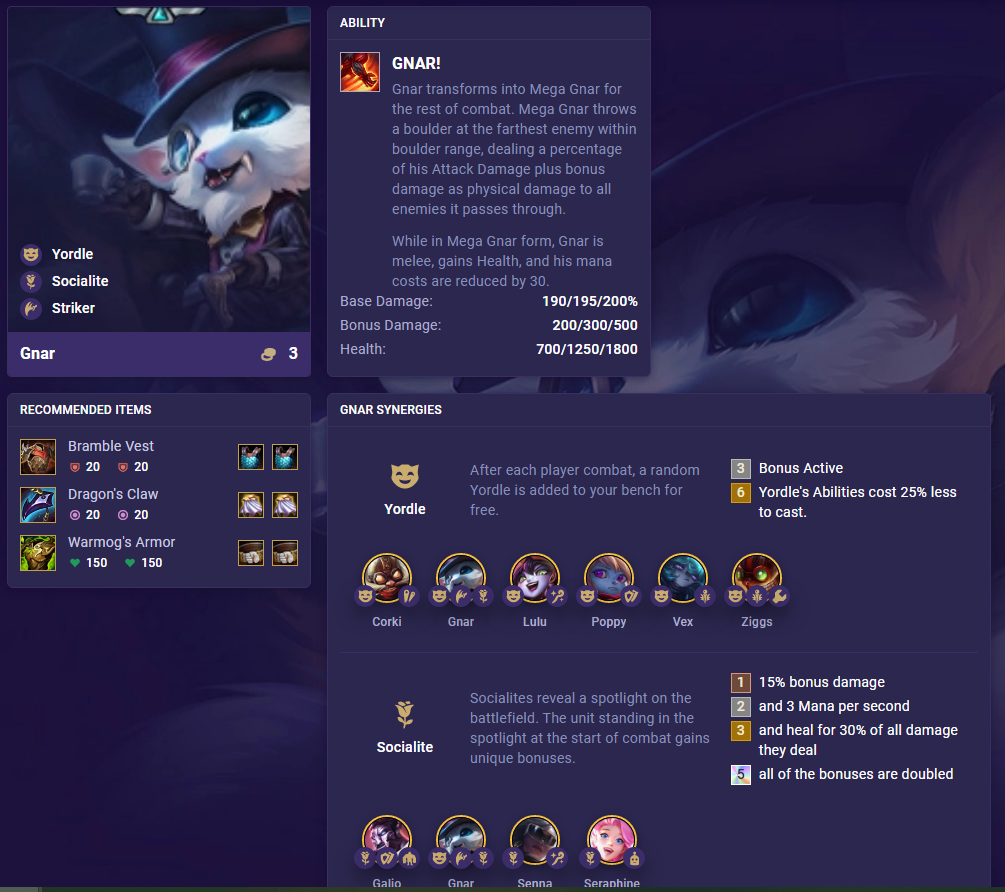
First Impressions:
Gnar is replacing Heimerdinger as the 3-cost slot for Yordles, and he provides quite a different role than Heimerdinger. Gnar will act as another frontline unit for Yordles, but he doesn’t scale particularly well with magic damage.
Positioning: Frontline
Tips:
Even though Gnar doesn’t synergize particularly well with the Yordle team comps, he does act as a unit to transition into attack damage comps from a Yordle early game.
[See Gnar’s TFT Champion Page]
Leona
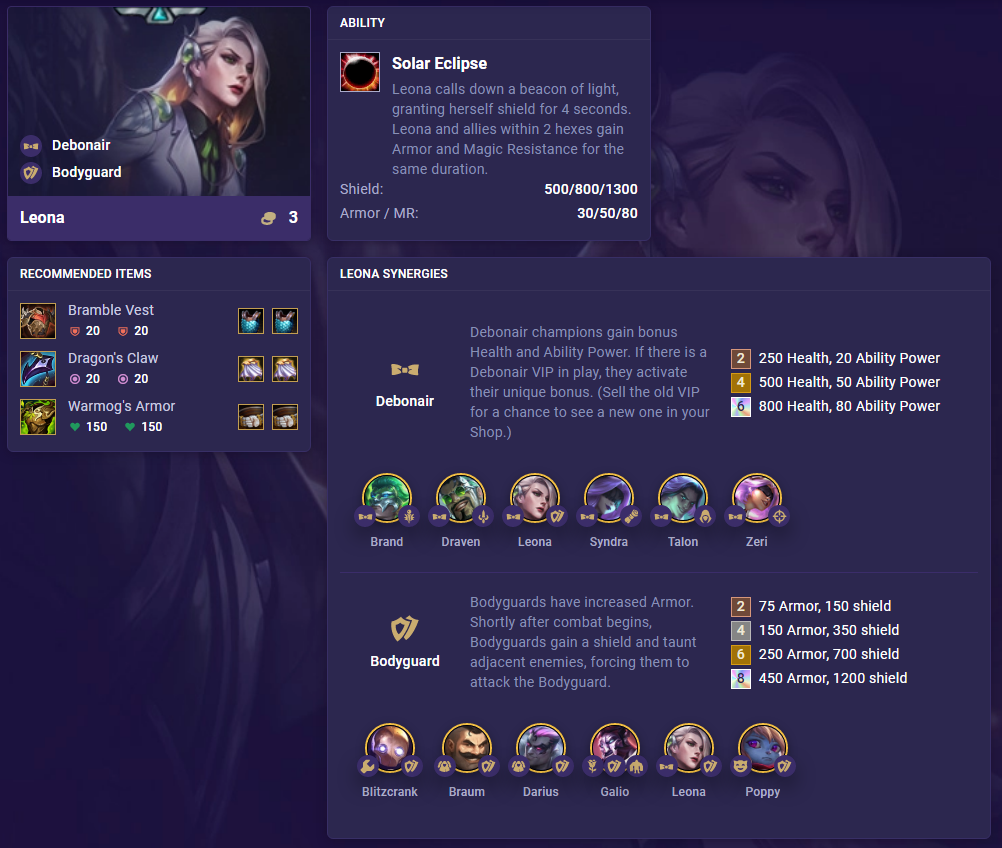
First Impressions:
Leona is back, but she is now Debonair instead of Academy. She is functionally almost the same, except her VIP bonus can potentially turn her into monster tank. We don’t have her VIP bonus right now, but it involves making her tankier, that’s for sure.
Positioning: Frontline
Tips:
Leona won’t be much different from set 6, but finding a random VIP Leona can be a good pickup even if you don’t plan on playing Debonair. She can be a useful Bodyguard to use as a mid game frontline unit before other units like Braum or Galio, etc.
[See Leona’s TFT Champion Page]
Lucian
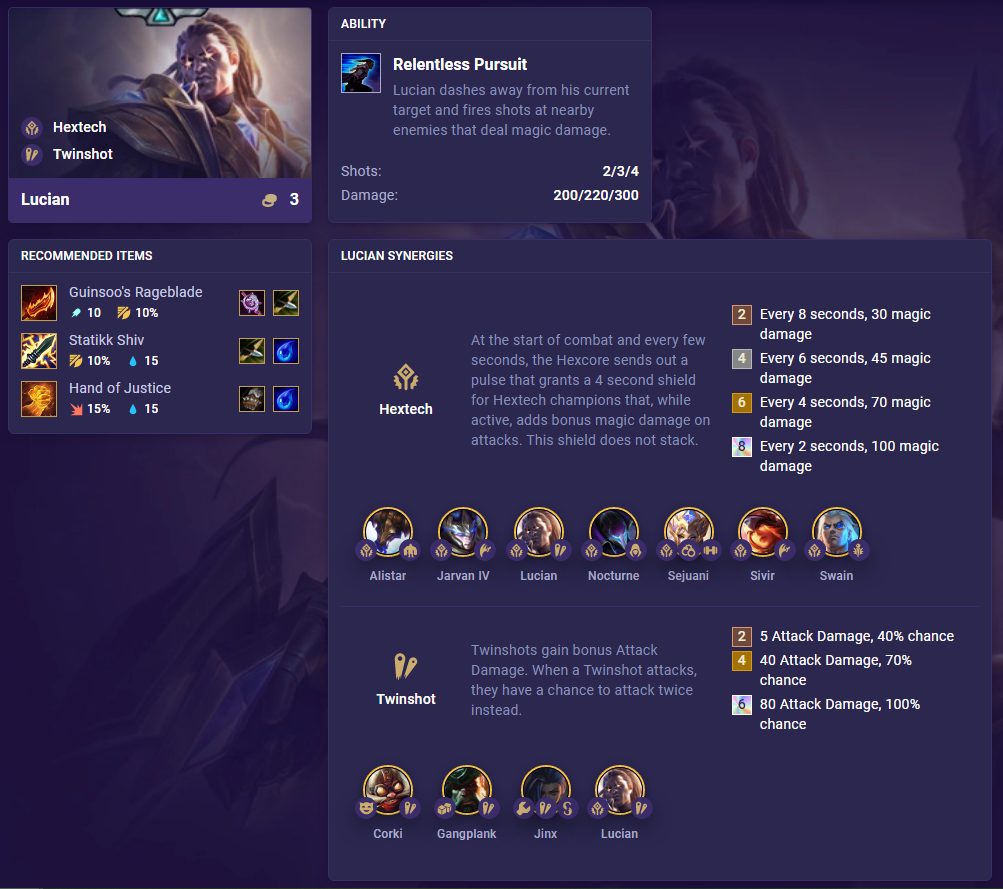
First Impressions:
Lucian is back with an ability we’ve seen before, so it’s nothing particularly new here, but hit kit does seem to synergize well with his traits. Hextech gives magic damage on hit, while Twinshot allows him to attack more, so scaling Lucian with attack speed could potentially be very good.
Positioning: Backline
Tips:
Lucian is one of those units that can be amazing or super frustrating to use sometimes. He may dash randomly into danger with his ability, or become an untouchable god. Either way, that’s what you sign up for when you play Lucian.
[See Lucian’s TFT Champion Page]
Morgana
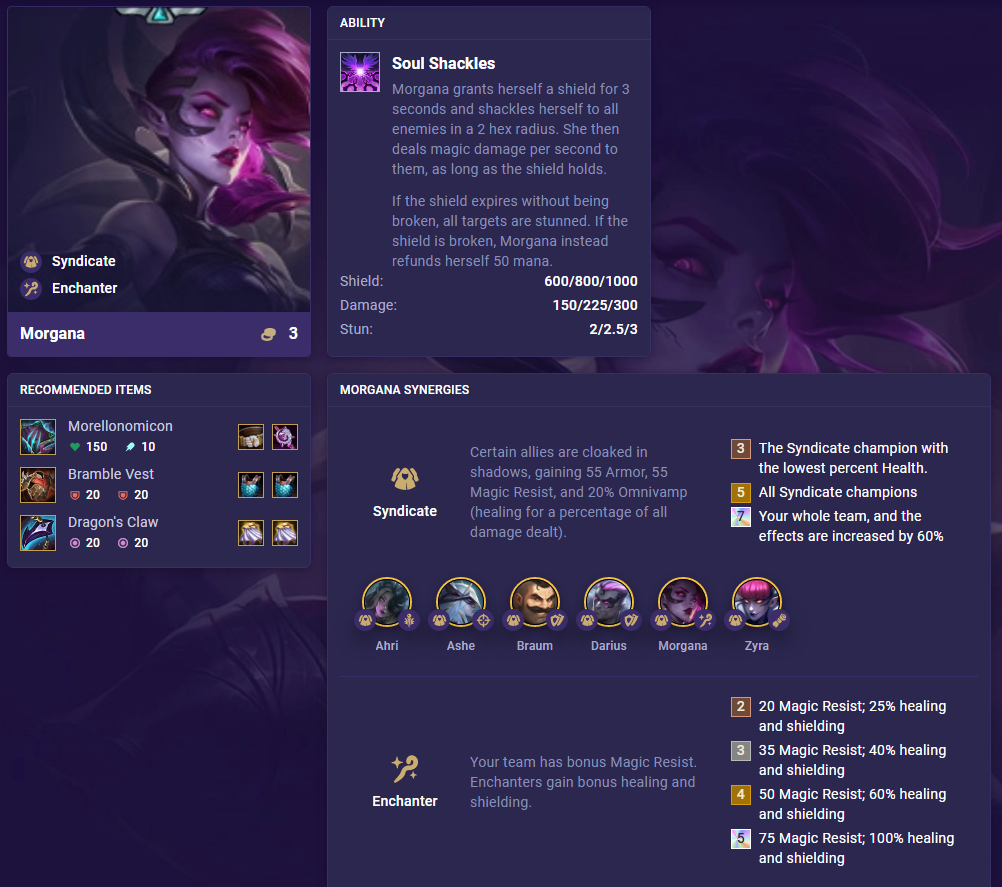
First Impressions:
We’ve seen Morgana be extremely powerful before in Set 4, but she is now returning with a toned down ability. Her shackles will only succeed if her shield is not destroyed, which can be a tall order when she’s a frontline unit. The removal of Guardian Angel also makes this ability less powerful, although even with Guardian Angel you would still need her shield to stay up anyway.
Positioning: Frontline
Tips:
Even though Morgana is a frontline unit with her ability, you still want to somewhat protect her from damage so that her ability successfully stuns enemies. You can do this by sandwiching her between other frontline units. Ideally, she takes enough damage to cast quickly, but not enough damage that her shield is broken.
[See Morgana’s TFT Champion Page]
Senna
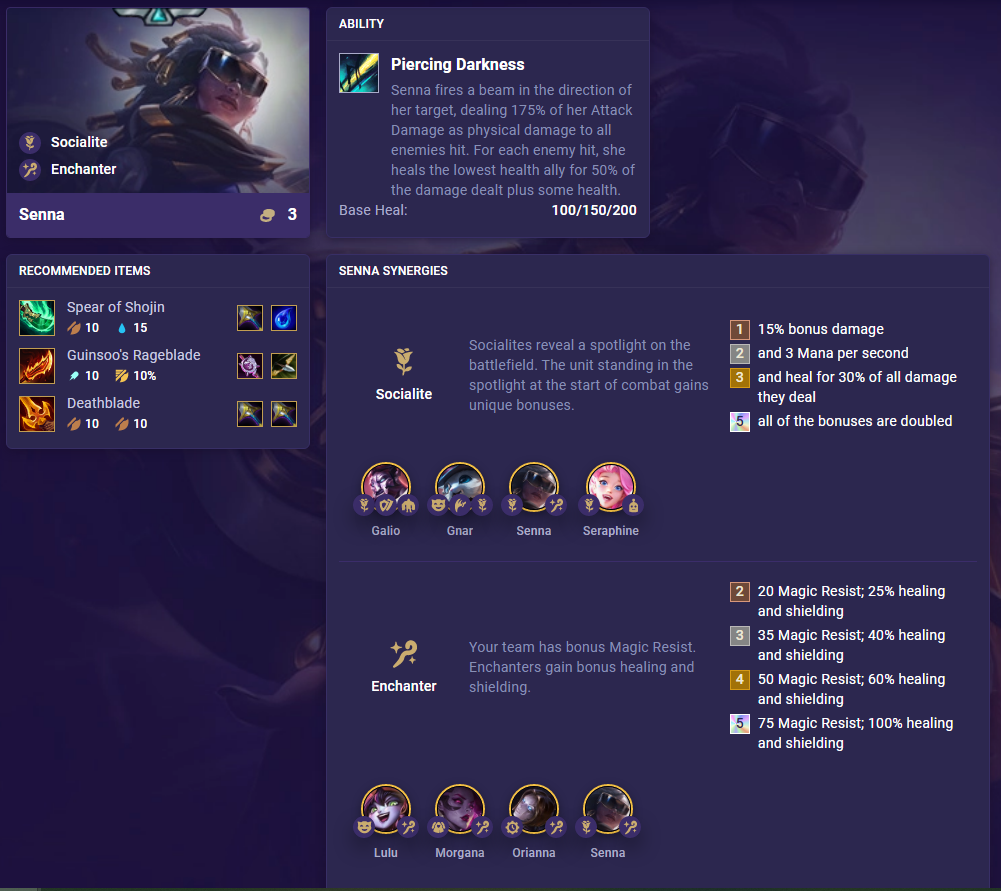
First Impressions:
Senna is the spiritual successor for Taric as she has the same traits, and her ability heals allies. She has a bit more damage built into her kit, but Taric was great in that you could splash him into any comp as extra frontline with useful traits. While Senna has the same useful traits, we’re unsure if her ability makes up for the loss of frontline that Taric provided.
Positioning: Backline
Tips: Just like Ashe, you want Senna to hit as many units as possible, so you will want to line her up against the enemy frontline in a way that her ability also hits their backline. Switching corners for Senna should do this provided you are keeping up with who you will fight next.
[See Senna’s TFT Champion Page]
Tryndamere
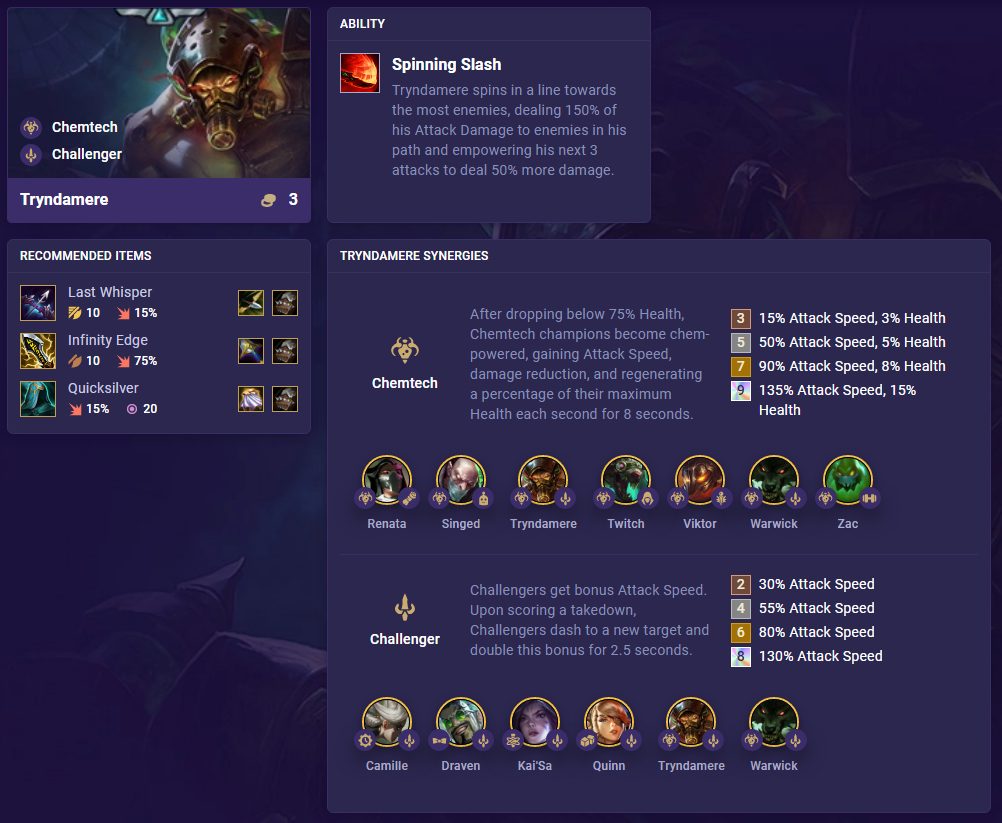
First Impressions:
Tryndamere is definitely a glass cannon type of unit. He will spin right into the enemy and slap away at units. However, since he has the Chemtech trait, it’s very possible that he will survive for a good amount of time before dying.
Positioning: Frontline
Tips:
Frontline damage dealers always like to have CC protection with things like Quicksilver, but Tryndamere would also benefit a lot from lifesteal. Taking up two item slots for defensive oriented items is less attractive for a main carry, so hopefully his Chemtech trait carries his defense.
[See Tryndamere’s TFT Champion Page]
4-Cost Champions
Ahri
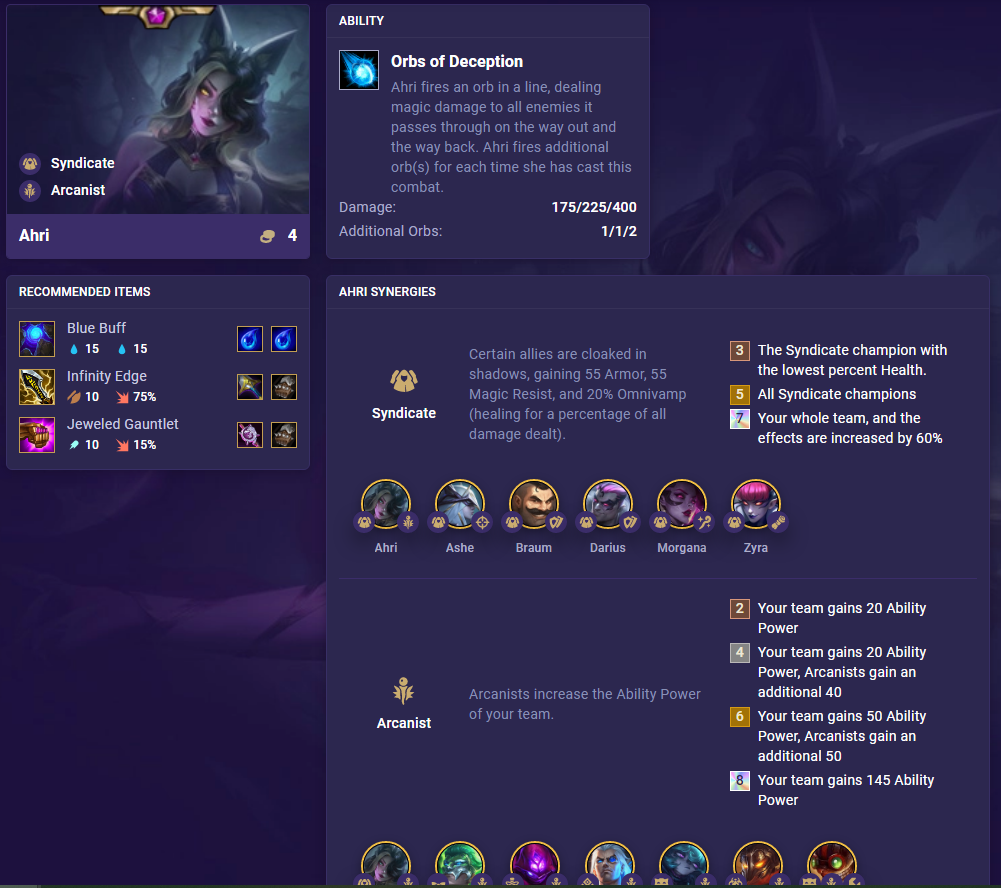
First Impressions:
Ahri is the spiritual successor for Lux, and her ability is quite powerful. Her area of effect becomes larger the longer the fight goes on, so while she may not scale as crazy as Lux, she has her own strengths.
Positioning: Backline
Tips:
Even though Ahri sends out more Orbs with each cast, these orbs won’t overlap, so enemies will still only get hit by one orb. There is no shotgun effect. Even still, as her ability goes on, she will eventually start hitting the entire board.
[See Ahri’s TFT Champion Page]
Alistar
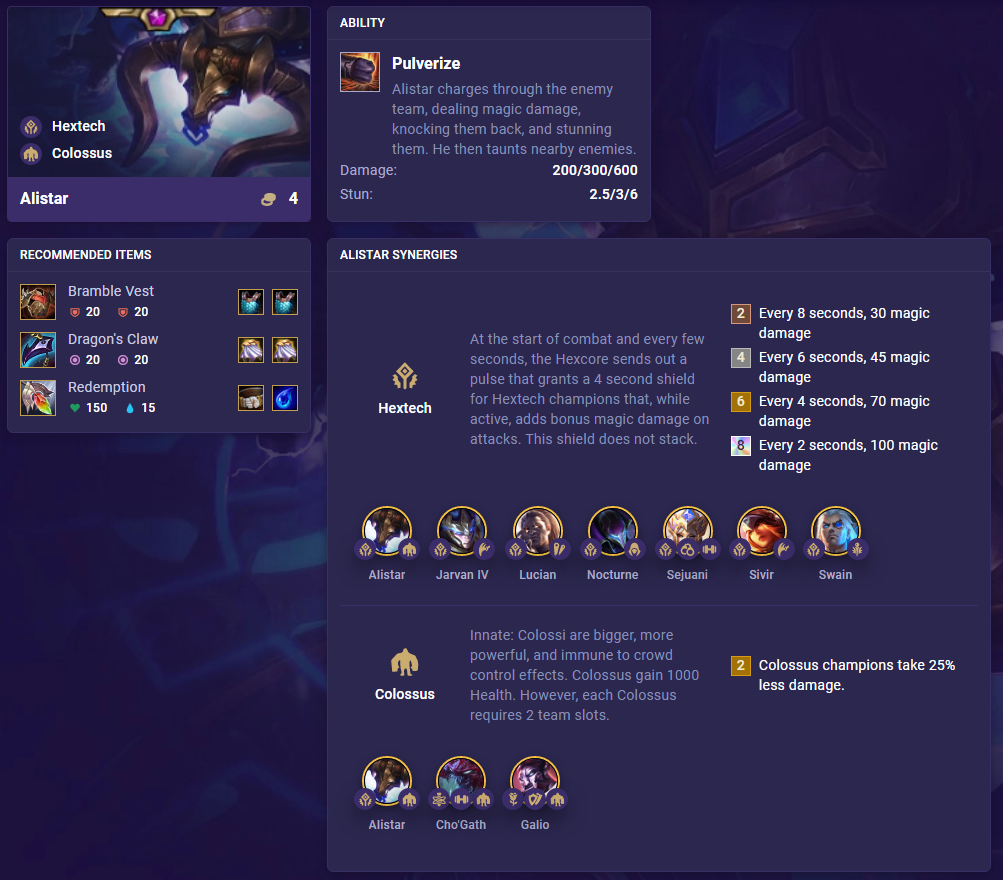
First Impressions:
Alistar is replacing Sion as a 4-cost Colossus, and he fills largely the same role as before. He is a very tanky unit that does mostly CC with his ability.
Positioning: Frontline
Tips:
Sion was a nice Colossus in that Imperial was a very small trait compared to Hextech. With Hextech being a very large trait with bonuses up to 8 units, it will be hard fitting in Alistar into team comps. Taking up 2 unit slots makes it hard, but having another Colossus like Galio in will also make it hard to reach higher levels of Hextech.
[See Alistar’s TFT Champion Page]
Draven
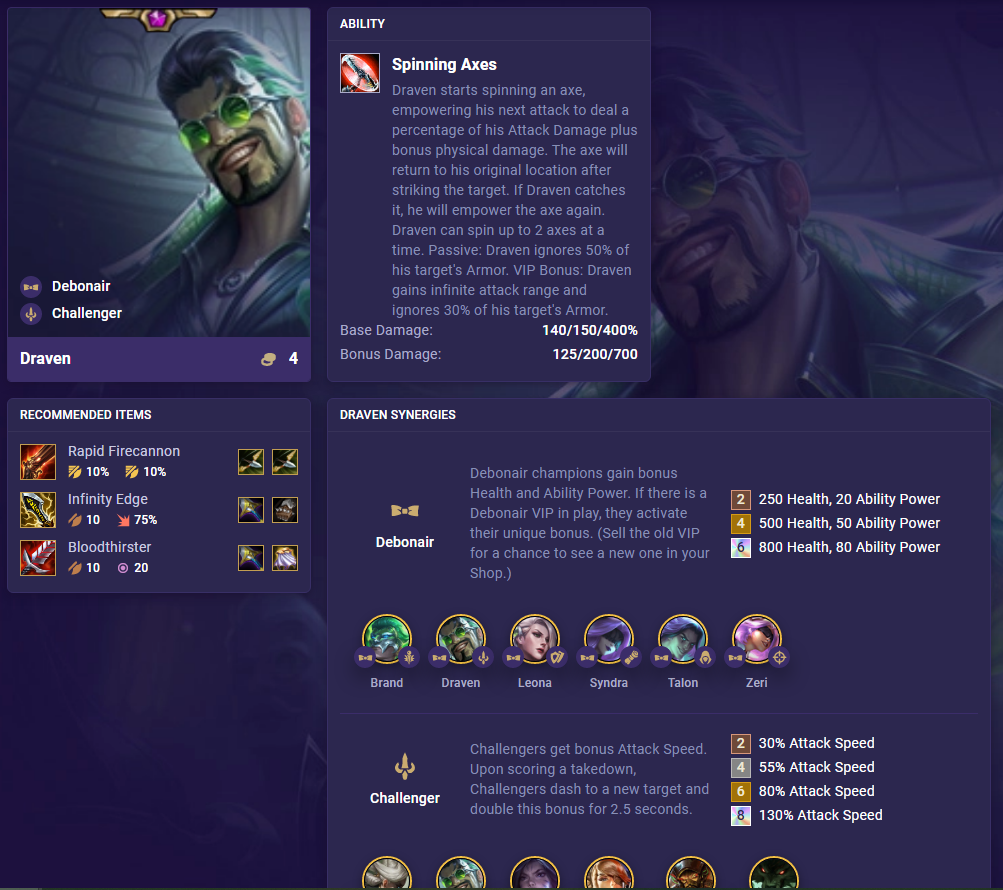
First Impressions:
Draven is back with the only ability he needs. It seems Riot has learned from past iterations of Draven and are giving him passive armor piercing. This opens up a lot more item space as he does not have to run Last Whisper to be effective.
Positioning: Backline
Tips:
Draven is a very greedy carry. He wants everything, but is limited by his items. Increasing his range allows him to stay in one spot and consistently catch his axes. Lifesteal allows him to be a very safe carry. CC immunity allows him to safely stay in the corner without being hit, etc. We’ve seen players in the past move Draven up into the third row to account for his range issues, but with the VIP bonus, you can safely place him anywhere in the backline without having to worry about him moving.
[See Draven’s TFT Champion Page]
Irelia
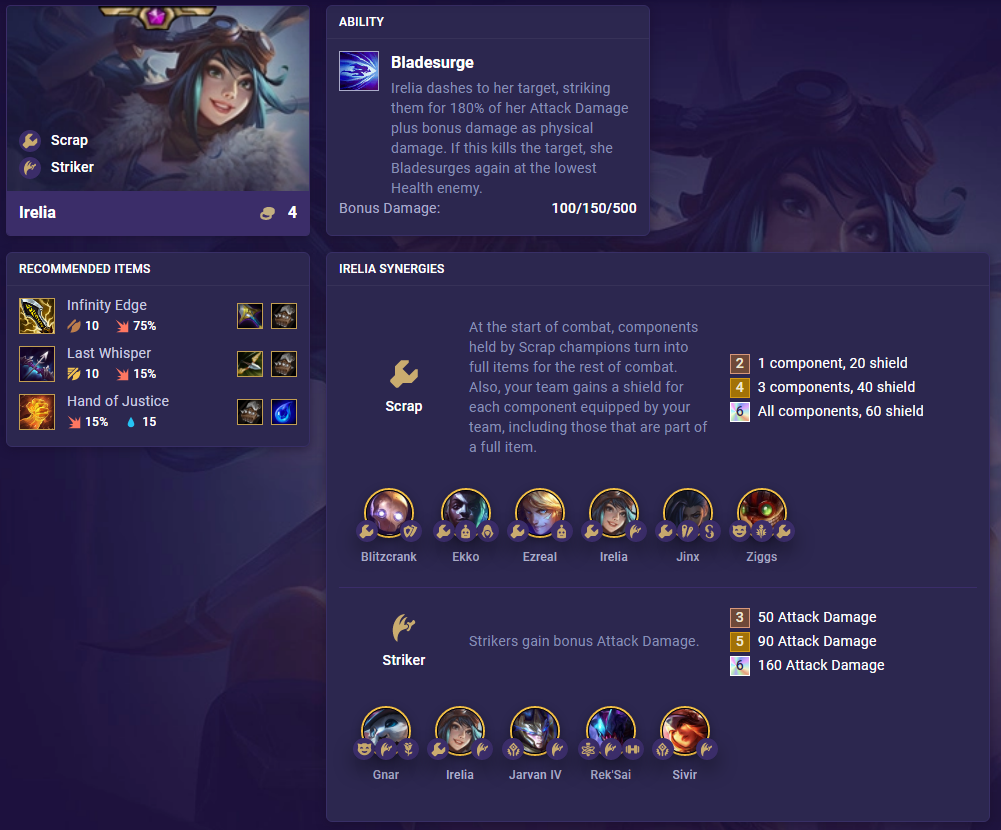
First Impressions:
Irelia is back with her Set 4 ability Bladesurge. With the Striker trait, she will gain a fat stack of Attack Damage, so building crit items and other items that scale her damage will be great.
Positioning: Frontline / Midline
Tips:
We can expect Irelia to be somewhat of a squishy carry compared to other frontline units, so placing her one row back or on the edges can keep her somewhat safe. Items like Quicksilver are also great for any melee carry, but hopefully she dashes around enough and dodges it all.
[See Irelia’s TFT Champion Page]
Kha’Zix
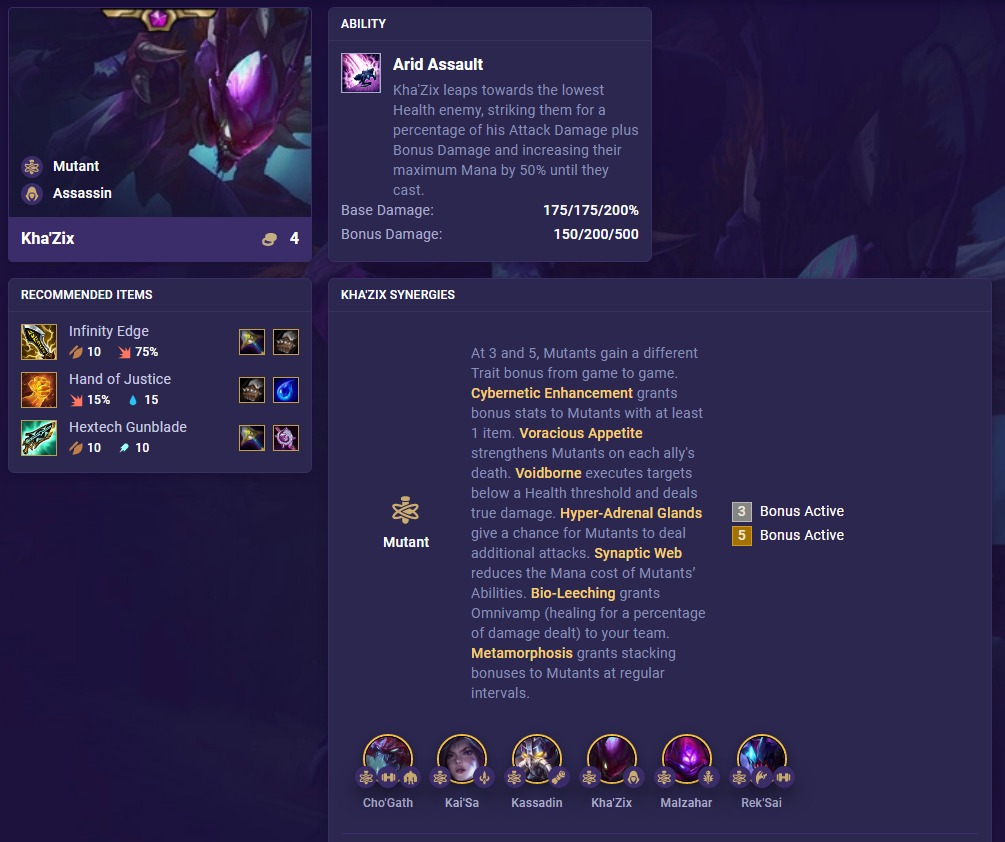
First Impressions:
It’s always hard to judge an Assassin’s carry potential without actually playing them. Either they blow up enemies, or they fall short and are not played. On one hand, Kha’Zix’s ability is great in that he jumps to low health enemies to execute them. On the other hand, he may not actually stick to the target you want him to target.
Positioning:
Backline
Tips:
If Kha’Zix is your main carry, you still have decent control over who he jumps to first as the target he auto attacks will likely be the lowest health enemy. Also, the fact that it’s lowest health and not lowest percent health is another thing to consider. If you have other Assassins whittle down an enemy carry, Kha’Zix should eventually jump in to clean the rest up.
[See Kha’Zix’s TFT Champion Page]
Renata
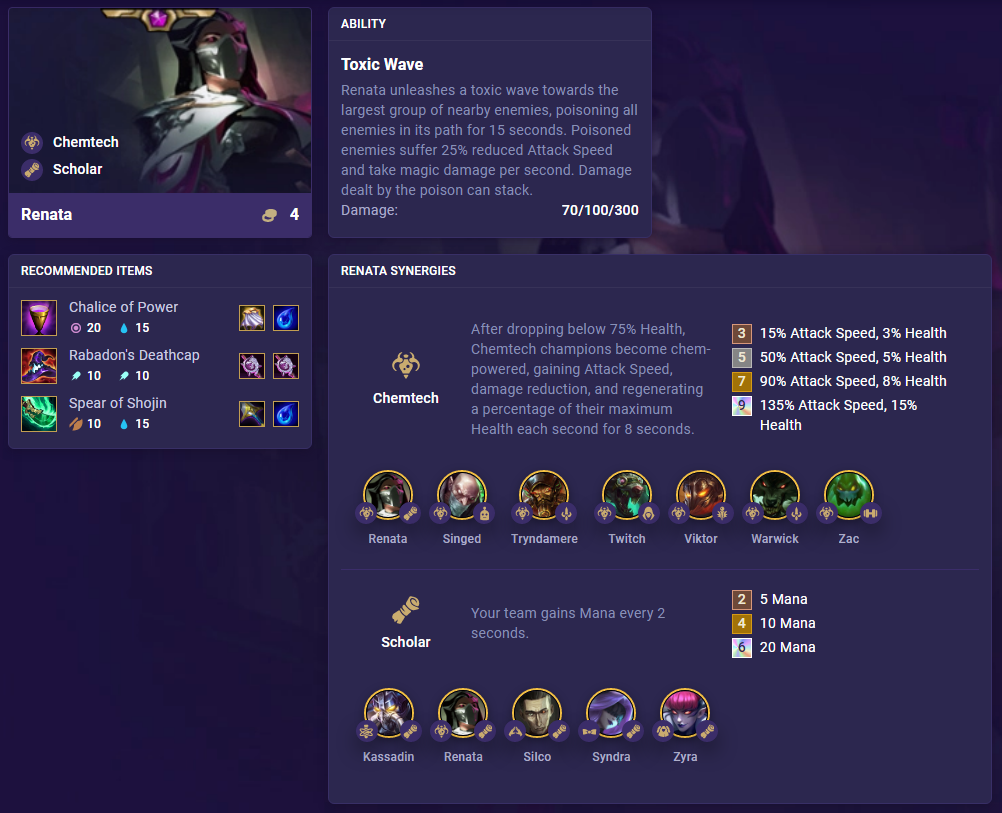
First Impressions:
There’s theories going around that Renata is actually Viper from Valorant, but we have yet to see any confirmation. Maybe Riot will do some sort of Marvel type multiverse in the future. But I digress, Renata’s ability makes it seem like she leads more into a supporting/utility role, but it’s very possible that we see her become a carry if her damage is serviceable.
Positioning: Backline
Tips:
Since Renata automatically targets the largest group of enemies, you won’t need to worry too much about how you position her. However, if you can line it up better, you should still try.
[See Renata’s TFT Champion Page]
Sivir
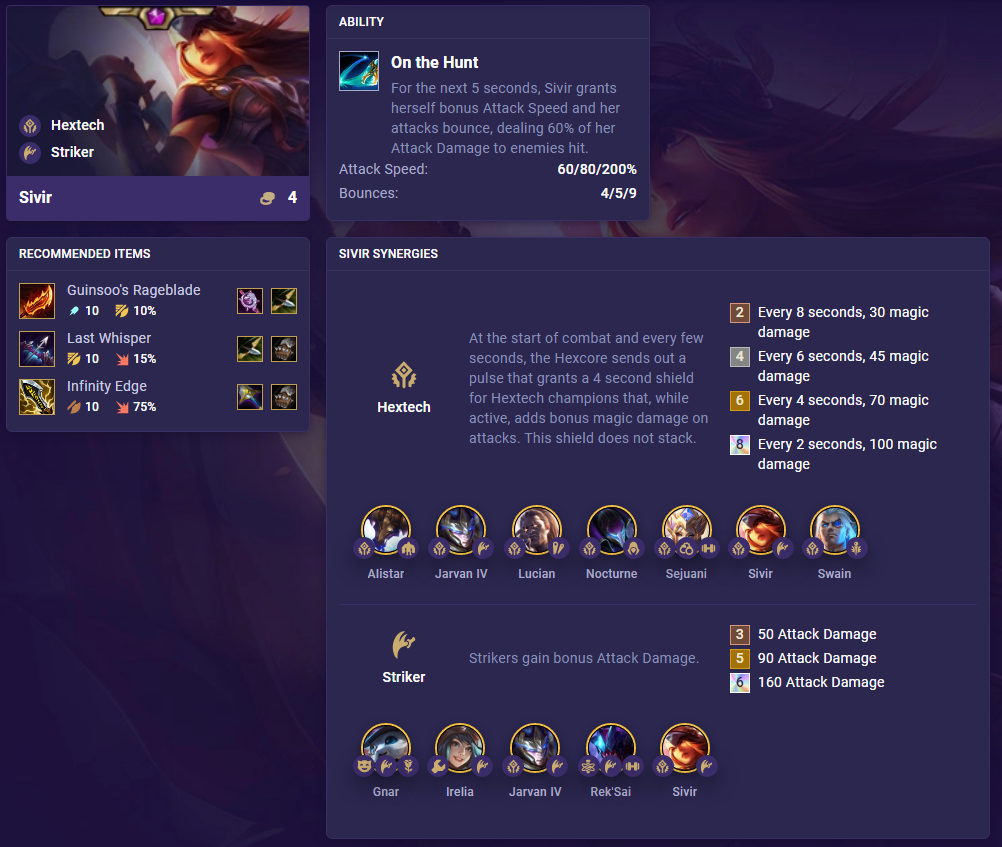
First Impressions:
Sivir seems to be a great AD carry with her ability that bounces her attacks to enemies. Even though she won’t apply on-hit effects with her ability, the damage should still be quite strong. It also scales based on her Attack Damage, which synergizes well with her Striker trait.
Positioning: Backline
Tips:
Attack Speed should definitely be prioritized for Sivir as her damage will scale the most with it. She already gets plenty of Attack Damage with her Striker trait, so scaling that with Attack Speed should lead to better damage.
[See Sivir’s TFT Champion Page]
Vi
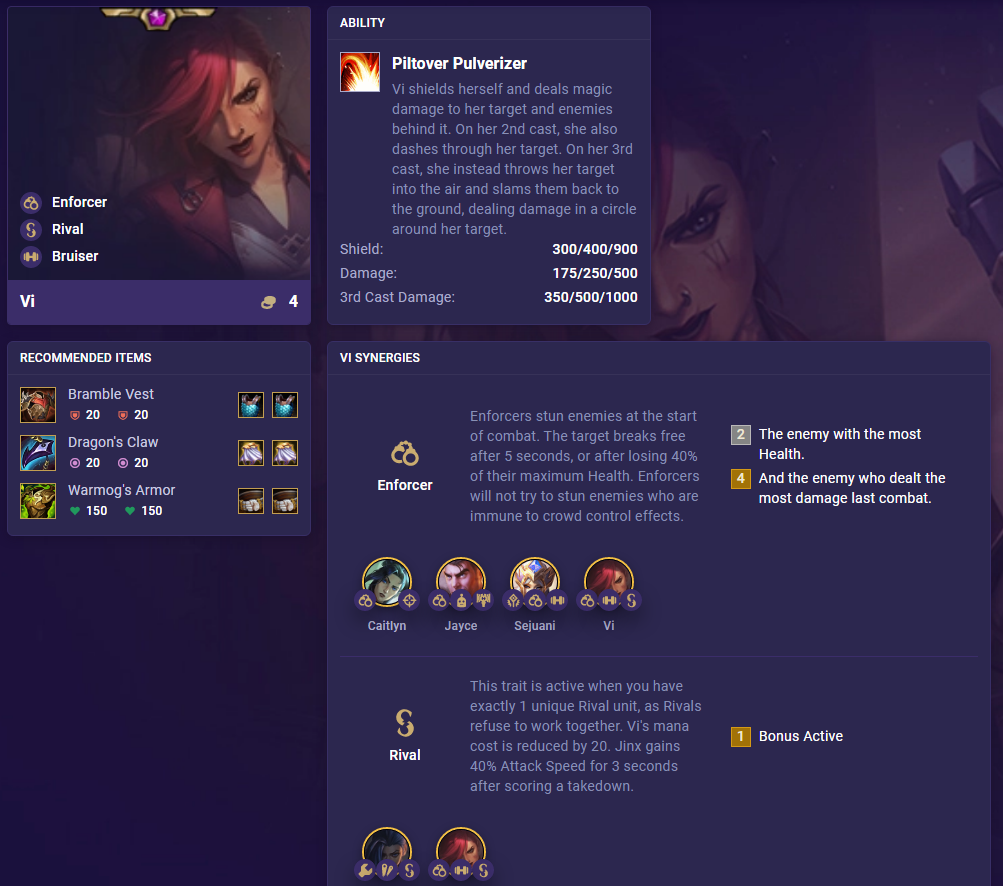
First Impressions:
Vi is back, but she is coming as a 4-cost now instead of a 2-cost. Her ability has also changed to have multiple parts. This turns her into quite the strong unit that provides solid damage, utility, and frontline.
Positioning: Frontline
Tips:
Unfortunately, you won’t want to use Jinx and Vi in the same team comp. This could potentially mean that Bruisers will be seen in team comps other than Twinshots (with Urgot and Jinx), or potentially that Vi is not picked up in favor of picking up Jinx instead. We will have to see.
5-Cost Champions
Silco
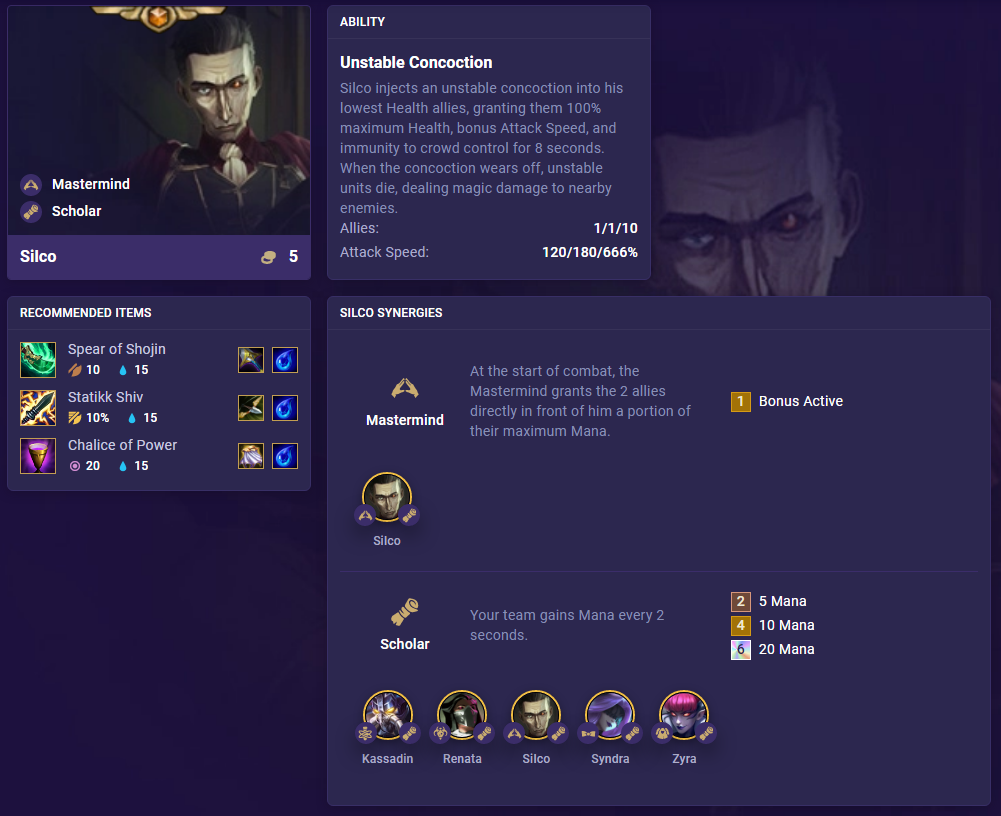
First Impressions:
Silco is coming in as the first TFT unit that isn’t in League of Legends. You will likely be familiar with him if you’ve seen the show Arcane. He is somewhat Yuumi’s successor as a flexible 5-cost unit that is also a Scholar. His ability is quite powerful, buffing up allies with more attack speed and also CC immunity. However, buffed up allies will also die after the duration ends.
Positioning:
Backline
Tips:
Make the most use of Silco’s Mastermind trait and place units with powerful abilities directly in front of him. This will allow them to cast much faster and get the advantage in the fight.
[See Silco’s TFT Champion Page]
Zeri
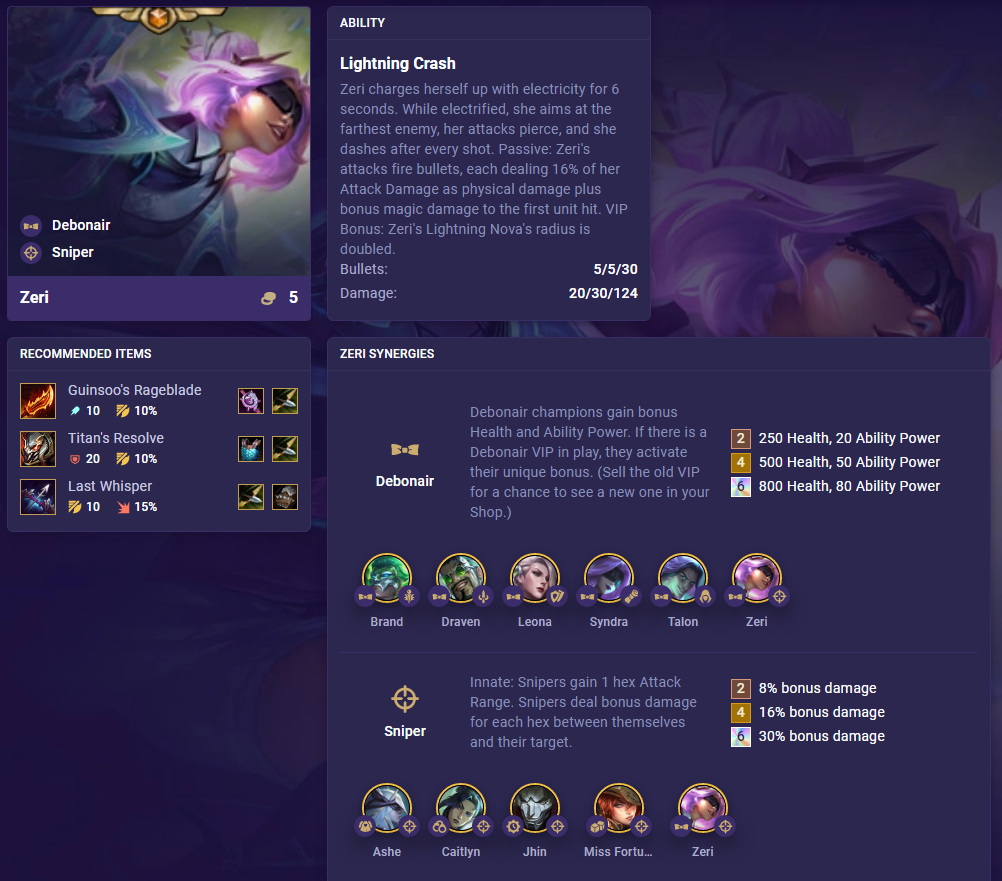
First Impressions:
With the removal of Akali, we now have Zeri as another 5-cost carry, this time for the new Debonair trait. Her ability has a lot of aspects, making it interesting to see what happens with her best in slot items.
Positioning: Backline
Tips:
We’re unsure how exactly to build Zeri best with items. She scales off of almost anything, like Attack Damage, Attack Speed, Ability Power, etc. This makes her quite a flexible late game carry to have as she can use just about any item.
[See Zeri’s TFT Champion Page]
Thanks for reading! Head to our Team Builder to start theorycrafting and be sure to check our best meta comps to find another answer to climb with once TFT Set 6.5 hits live!
To learn about the new TFT Set, head to our all-in-one Teamfight Tactics Set 6.5 reveal page that covers all champions, synergies, and more!
Subscribe to our newsletter:
Don’t miss out on all of the latest TFT content!
 Download APP
Download APP Collapse
Collapse